Resources
Academics for Black Survival and Wellness. (2020). Call to Action. https://www.academics4blacklives.com/call-to-action
Asplund, M., & Welle, C. G. (2018). Advancing science: How bias holds us back. Neuron, 99(4), 635-639. https://www.sciencedirect.com/science/article/pii/S0896627318306433
Stewart, A. J., & Valian, V. (2018). An Inclusive Academy: Achieving Diversity and Excellence. MIT Press.
Kuo, M. (2017, January 30). Consciously combating unconscious bias. Science Careers. Retrieved from: https://www.sciencemag.org/careers/2017/01/consciously-combating-unconscious-bias. doi:10.1126/science.caredit.a1700010.
Laymon, K. (2018). Heavy: An American Memoir. Scribner.
Kendi, I. X. (2019). How to be an antiracist. New York: One World.
Livingston, R. (2020, September). How to promote racial equity in the workplace. Harvard Business Review. Retrieved from: https://hbr.org/2020/09/how-to-promote-racial-equity-in-the-workplace
Harrison-Bernard, L. M., Augustus-Wallace, A. C., Souza-Smith, F. M., Tsien, F., Casey, G. P., & Gunaldo, T. P. (2020). Knowledge gains in a professional development workshop on diversity, equity, inclusion, and implicit bias in academia. Advances in Physiology Education, 44(3), 286-294. doi: 10.1152/advan.00164.2019
Taffe, M. A. & Gilpin, N. W. (2021). The Funding is the Science: Racial Inequity of NIH Funding for Substance Use Disorder Topics Should Be Abolished. Drug and Alcohol Dependence, 229, 109163. https://doi.org/10.1016/j.drugalcdep.2021.109163
Page McBee, T. (2014) Man Alive: A True Story of Violence, Forgiveness and Becoming a Man. City Lights.
Malisch, J.L., Harris, B. N., Sherrer, S. M., Lewis, K. A., Shepherd, S. L., McCarthy, P. C., Spott, J. L., Karam, E. P., Moustaid-Moussa, N., McCrory Calarco, J., Ramalingam, L., Talley, A. E., Cañas-Carrell, J. E., Ardon-Dryer, K., Weiser, D. A., Bernal, X. E., Deitloff, J. (2020). Opinion: In the wake of COVID-19, academia needs new solutions to ensure gender equity. Proceedings of the National Academy of Sciences. DOI: 10.1073/pnas.2010636117. Companion website: https://academicequity.smcm.edu/
Sue, D. W. (2016). Race Talk and the Conspiracy of Silence: Understanding and Facilitating Difficult Dialogues on Race. Wiley.
Gosztyla, M., Kwong, L, Murray, N., & Williams, C. (n.d.) Responses to 10 Common Criticisms of Anti-Racism Action in STEM. Retrieved from https://antiracisminstem.wordpress.com/
National Academies of Sciences, Engineering, and Medicine. (2018). Sexual Harassment of Women: Climate, Culture, and Consequences in Academic Sciences, Engineering, and Medicine. Washington, DC: The National Academies Press. https://doi.org/10.17226/24994.
Crenshaw, K. (2020). Under the Blacklight [Series]. https://aapf.org/aapfcovid
Cornejo Villavicencio, K. (2020). The Undocumented Americans. One World.
Gilpin, N. W. & Taffe, M. A. (2021). Toward an Anti-Racist Approach to Biomedical and Neuroscience Research. The Journal of Neuroscience, 41, 8669-8672; DOI: https://doi.org/10.1523/
Seattle Channel. (July 3, 2018). Dr. Robin DiAngelo discusses 'White Fragility' https://www.youtube.com/watch?v=45ey4jgoxeU
Tatum, B. D. (2017). Why are all the Black kids sitting together in the cafeteria?: And other conversations about race. Basic Books.
DiAngelo, R. (2018). White fragility: Why it's so hard for white people to talk about racism. Beacon Press.
These are resources on prejudice, discrimination, and diversity, recommended by our membership and the RSA Diversity Committee, on social issues relevant to our society and members. Any listing does not necessarily reflect the views of the RSA as a whole. As part of our continuing efforts to educate and engage the general public, as well as our membership, we plan to add information to this page on regular basis. Please check back often for updates and contact Amelia.talley@ttu.edu if you would like to recommend a resource for this page.



